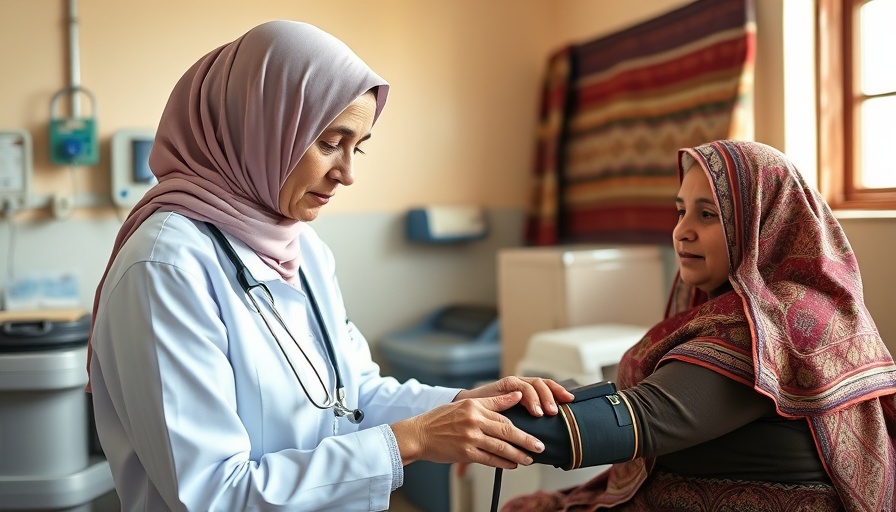
When Public Health Meets Politics: The Importance of Aid
The recent cuts in U.S. aid to Afghanistan have sent shockwaves through the country’s healthcare system, particularly affecting maternal and newborn health. With a staggering 206 health facilities shuttered, midwives are struggling to provide crucial support to women, especially those in remote areas who face dire challenges during childbirth. Stories from these healthcare providers exemplify the tragic outcomes of this funding withdrawal, emphasizing how political decisions can have grave humanitarian consequences.
Real Voices: Stories from Afghan Midwives
Consider Fatima, a 27-year-old midwife whose heart-wrenching account exemplifies the situation faced by many in Afghanistan. Just weeks after a local health clinic closed, she witnessed a mother die in labor, trapped by heavy snow and unable to reach a distant hospital. This story is not unique; many midwives report similar instances, where the lack of resources leads to preventable tragedies that deprive mothers of the support they desperately need. As Heather Barr from Human Rights Watch notes, the fallout from U.S. funding cuts is echoing among European donors, spurring a broader crisis of aid withdrawals that neglects women’s health and well-being.
Historical Context: A Fragile Network of Support
The abrupt cessation of U.S. aid reflects a broader trend of funding instability that has characterized Afghanistan's healthcare system for years. The period after the U.S. withdrew military forces saw a corresponding reduction in humanitarian support, with USAID previously providing over 40% of the total aid to a nation grappling with poverty and conflict. The fragile health system was already struggling; these recent cuts have pushed it closer to the brink of collapse, with maternal health suffering immensely.
Vital Signs: The Impact on Maternal Health
With healthcare facilities increasingly unavailable, the maternal and infant mortality rates in Afghanistan are alarming. Midwives are now reporting cases of complications that, with timely intervention, could have been treated successfully. The consequences of inadequate healthcare access are deadly; families face profound loss as mothers are left unsupported during a critical time of life.
The Bigger Picture: Global Aid and Women’s Health
The global response to women's health has increasingly become a matter of social justice. Advocacy groups and international organizations are calling for renewed focus on ensuring vulnerable populations receive adequate support—especially in developing nations. As we reflect on Afghanistan, it’s crucial to recognize the importance of sustained health initiatives that prioritize women. Investments in maternal health not only foster individual well-being but also strengthen communities and contribute to economic stability.
Taking Action: What Can Be Done?
So, what actions can individuals and organizations take to help? Stay informed about aid initiatives and support organizations that focus on maternal health in Afghanistan. Participating in community health discussions can raise awareness and potentially lead to increased advocacy for policy changes. It may also be worth examining how new technologies and integrative health practices could improve outcomes in under-funded regions.
By keeping the conversation alive and amplifying these voices, we can work towards a future where healthcare access is prioritized for every woman, regardless of her geographic location. There's a powerful potential for change—let's be part of it.
Conclusion: Our Role in Advocacy and Support
As citizens globally, we hold the responsibility to advocate for equitable healthcare access. The plight faced by women in Afghanistan should not be a silent crisis. Together, we can educate ourselves and others about the importance of global health initiatives that protect the lives of mothers and their newborns. The call is clear: we must prioritize women’s lives and take action to ensure they receive the care they deserve.
 Add Row
Add Row  Add
Add 




 Add Row
Add Row  Add
Add 

Write A Comment